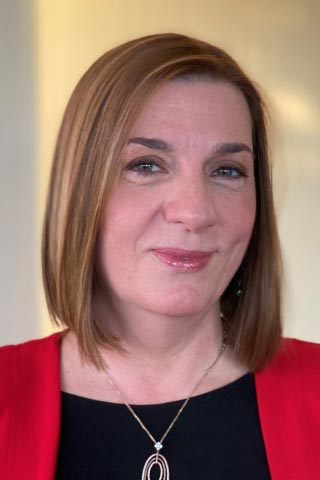Stories
The importance and impact of accessible clinical research studies
Karla Polk, Director of Clinical Research Collaborations Operations at Mirati interviewed Dr. Sibel Blau to highlight her perspective on the importance and impact of accessible clinical research studies and what study sponsors, like Mirati, can do to help ensure greater access and availability of clinical research studies to a broader patient population.
Q: You are passionate about patient care, what motivates you to provide the best treatment options for your patients each and every day?
A: There has been significant progress in the care of cancer patients due to innovation in science, drug development, technology, and operations, however, there are major barriers in reaching out to all patients with these modalities in the community. I am very motivated in building and developing programs for community oncology practices to be able to tap into these advances and be a part of building and providing the best care any cancer patient can get in their own communities.
Q: As head of precision medicine for your practice, why is having access to targeted therapies within the community important for all patients?
A: Cancer is complex, but every patient has their own unique needs that must be met in order to beat this terrible disease. They need a unique approach. In community oncology (and everywhere else), it is essential to understand every single patient problem and approach them specifically and as thoughtfully as possible with their treatment. For that reason, a precision program that incorporates data from every aspect of a patient’s cancer diagnosis, using informatics that can make sense of it in a timely manner with a practical way to introduce the “right treatment package”, is critically important. I want to cure my patient’s cancer or get them to long-term survival with the best quality of life. This requires a village to achieve.
Q: How do unique clinical trial models, like Just In Time activation, impact patient access? How is Exigent Research moving the needle to expand patient access?
A: Exigent Research is a unique network with community practices that come together to utilize and share data with centralized capabilities from screening, budgeting, contracting, regulatory work, and central help at the practice level from simple coordination to standardization of the most sophisticated programs. The unique role of the network is to be able to communicate each PI and research from each employee. With awareness and participation by practice, we are able to bring studies that are hard for individual practices to take on their own which is why being able to provide access to each patient throughout the Network in a “Just In Time” model makes sense. Moreover, we can directly do this with sponsors within our established infrastructure by leveraging human and artificial intelligence (AI) help. This enables time, and effort and eliminates financial waste at both the practice and sponsor level. Our model of Just in Time is defined as “Accelerated Trials on Demand,” or ‘ATOD.’ We are hoping to open many trials at the central level that will be available to many more patients close to their homes.
Q: As a study sponsor- what can Mirati do to ensure we are executing with speed, ease, and trust?
A: Mirati is our first direct industry sponsor partner. In that, we have developed trust and functionality over time. We do need to continue to develop ways to make it more seamless and easier as technology progresses. Many things that are in the way of negotiating faster and better contracts can be done ahead of time and amended over time to make this work so much more efficient. This will enable the true work of ATOD. Less bureaucracy, more established contracts and easier communication with predetermined personnel.
Q: What would you share with us about how Mirati impacts patients with our clinical research?
A: I have been always a major fan of companies that take a chance on our start-up company with forward thinking. Mirati believes in research in community oncology and appreciates our partnership. With this, Mirati is already way ahead by making a huge impact in bringing access to trials for our patients.
Q: From your perspective, what are the biggest barriers to health equity, specifically for cancer patients?
A: From my perspective the following areas serve as barriers to health equity, at the practice level; workforce decline, research PI time and training, financial impact in infrastructure development, distance, technological issues to patient homes, increasing operational burden on physicians and staff, and the decline in reimbursement to be able to provide care. And at a patient level, financial toxicity, distance and technological challenges, socioeconomic and educational challenges, trust and cultural barriers including simple priorities in life, like feeding the kids vs paying gas to go to the clinic.
Q: What is one thing you want people to know about the importance and impact of accessible clinical research studies?
A: Every patient deserves and needs the best therapy that will ensure long-term survival and good quality of life for their cancer. Every patient deserves access to innovation and hope. Every patient needs to be considered for clinical trials that suit them. Talking about health equity, this access should not be based on the ability of the patient, but on what is appropriate for that given patient. In other words, regardless of resources, every patient should have the same access to trials for their disease to receive the best outcome.
Q: In your opinion, what can study sponsors do to help ensure greater access and availability of clinical research studies to a broader patient population?
A: Work with a unique independent oncology research network like Exigent and invest in the efforts of clinical researchers in the community to improve access and availability outcomes.
Q: Why is it important for sponsors like Mirati to collaborate with organizations like Exigent Research to put a substantial diversity plan in place?
A: Many of the patients receive their oncology care in the community and as a network with our scale and paired with Mirati’s focus on improving diversity on trials, we can make a difference and share that with the industry at large. Every day at Exigent, we are in the trenches, understanding all the issues and challenges of access to clinical trials. We are also positioned to educate and bring patients into these trials to break the barriers with the understanding of cultural and financial differences. We have relationships with our own patients, and they are embedded in our practices. We are also trained researchers with a unique network of centralized capabilities and technological advances and are committed to figuring out systems and programs with the need of resources. Mirati with its progressive binoculars can help create this solution along with us. Mirati and Exigent collaboration could be another wave of innovation and solution to this issue.


